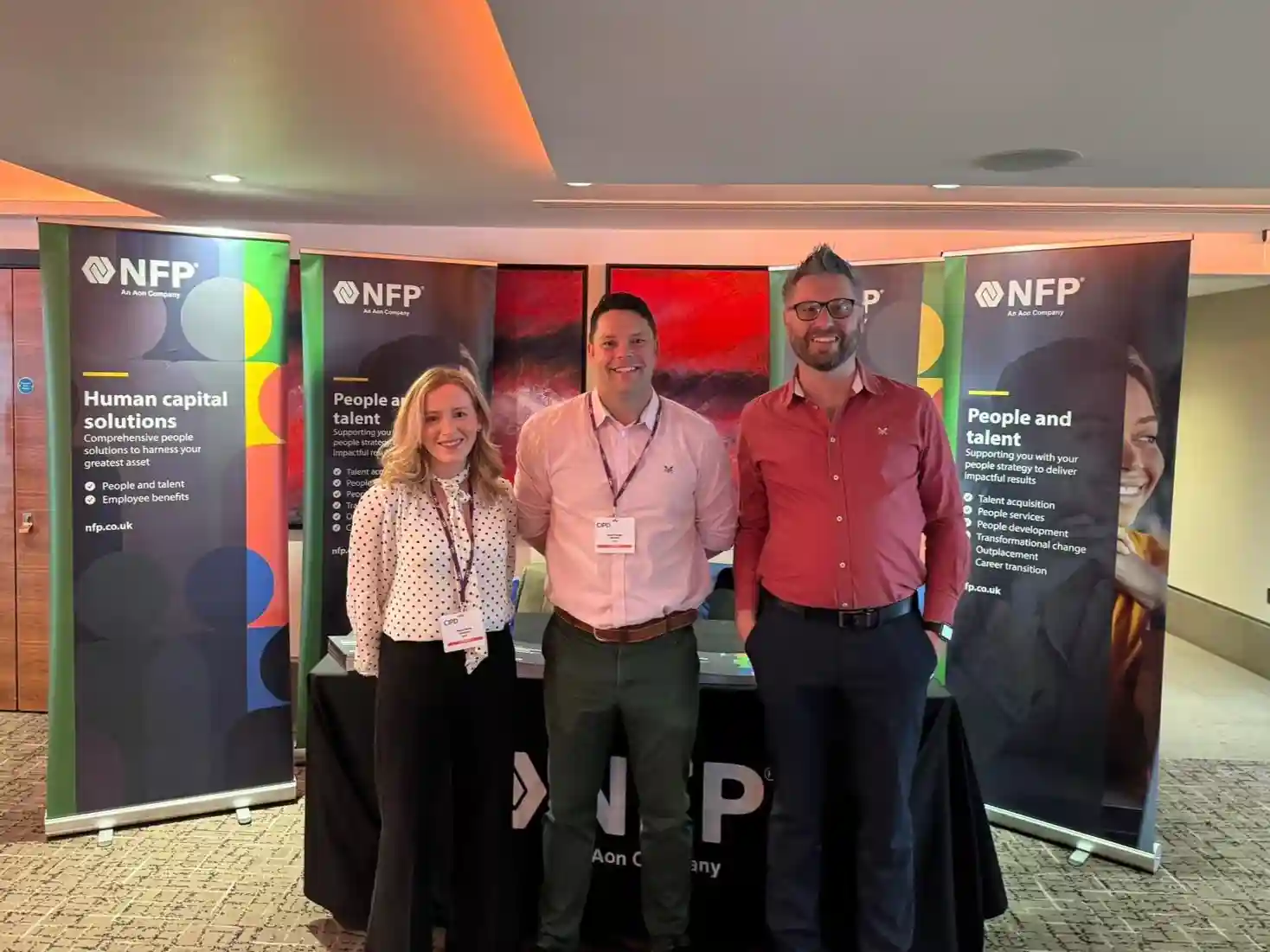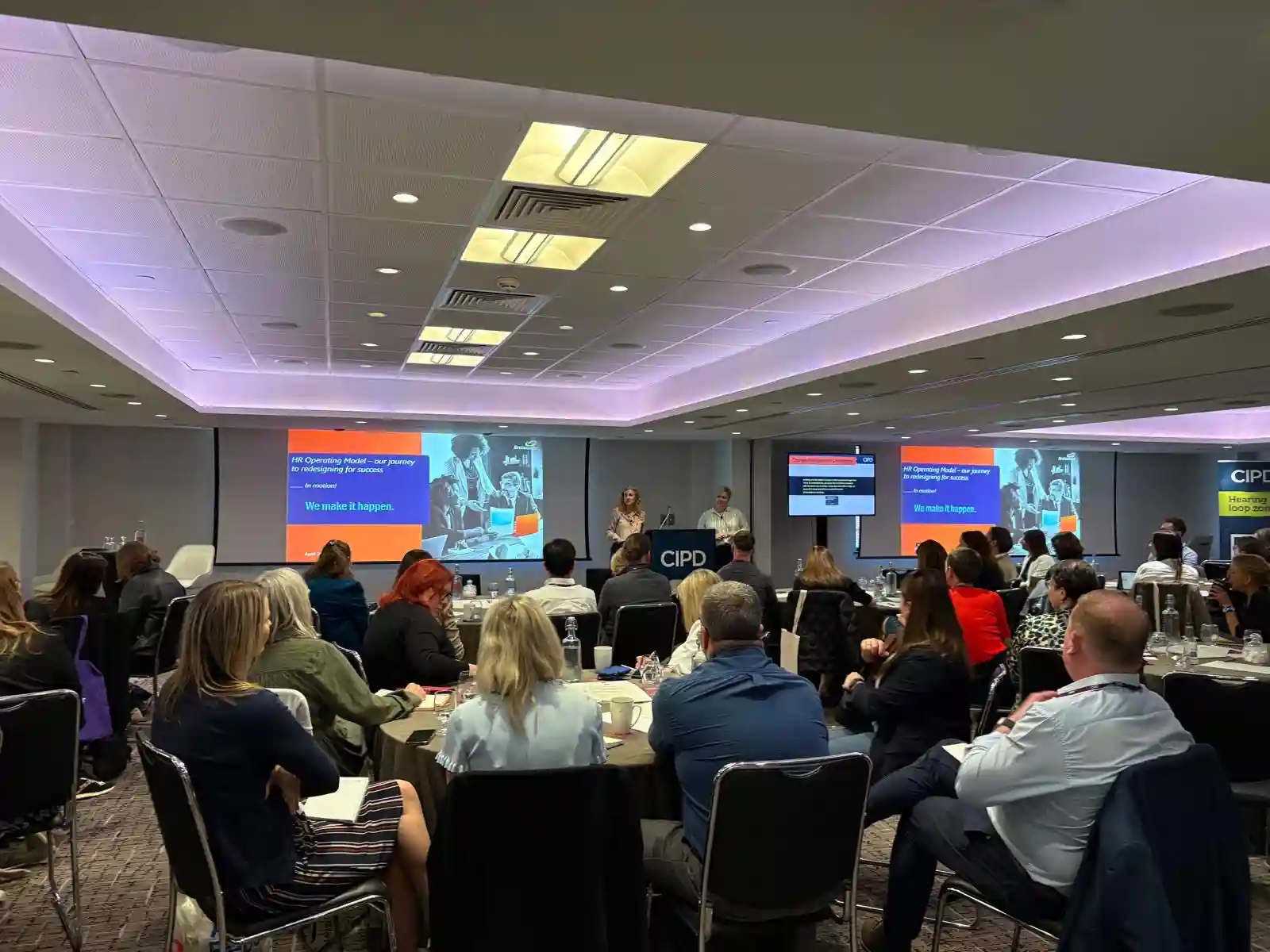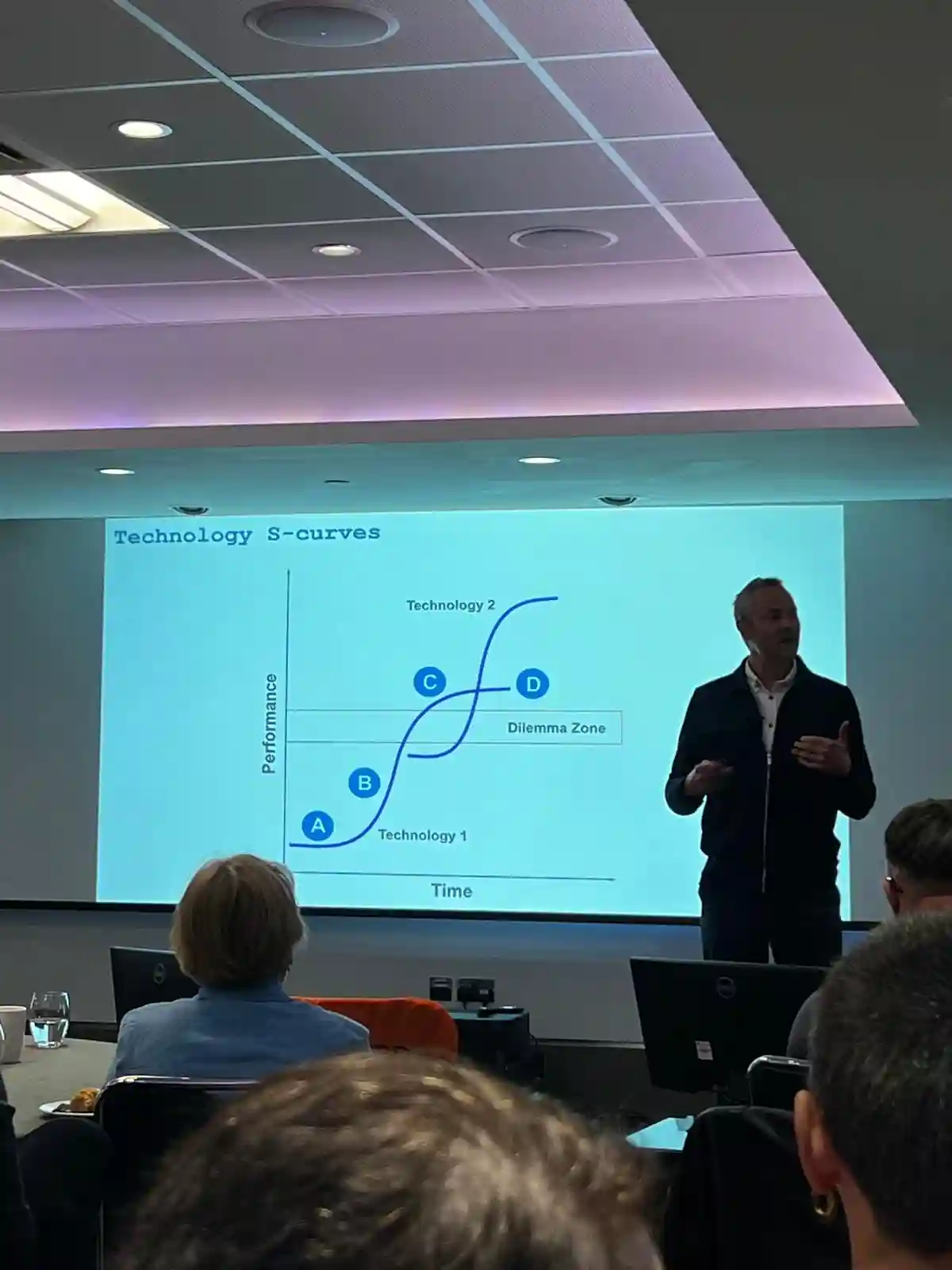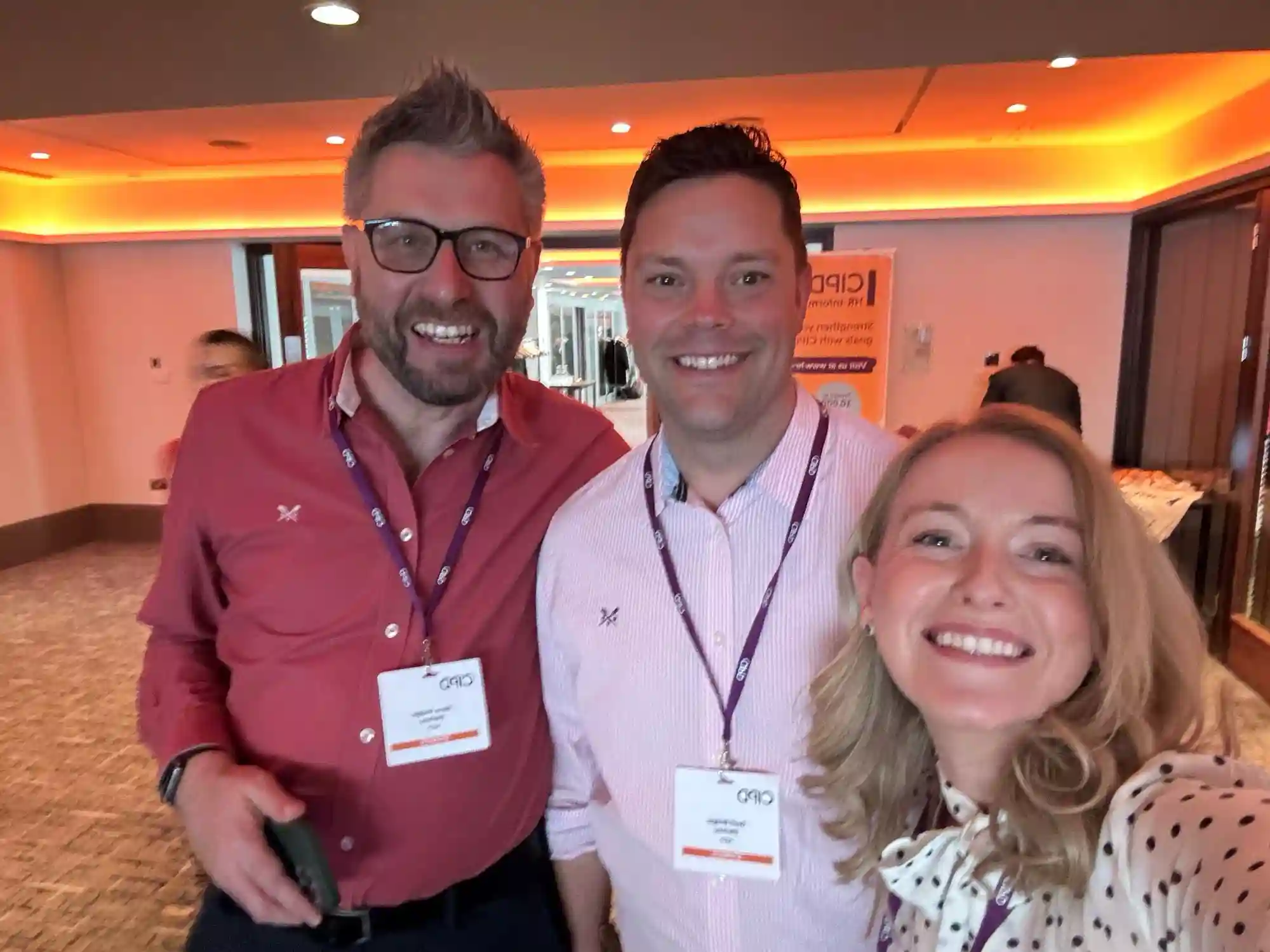Following our sponsorship of the CIPD Recruitment and Retention Conference, we were proud to partner with the CIPD again, this time sponsoring the Change Management Conference on 28th April 2025 at Tower Bridge.
The event brought together HR leaders, transformation experts, and change practitioners to explore strategies for building a more adaptive, human-centred approach to change. With constant change now the norm rather than the exception, it was a timely reminder that sustainable transformation isn’t just about speed or process, but about people.
Throughout the conference, we saw strong alignment with our own work: organisations need not just a plan, but a mindset shift, rooted in culture, leadership, and communication, to create an environment to evolve. Below are some of our highlights from the brilliant speakers on the day!

Agile Transformation Is Cultural, Not Just Technical
The day opened with a keynote from Neil Perkin, author of Agile Transformation, who offered a compelling perspective: agile isn’t a methodology, it’s a mindset. Using vivid motor racing analogies, he showed how the right team structure and environment are essential for optimal performance. Neil shared a striking statistic from Microsoft research:
“on average, people are interrupted 275 times a day.”
If each interruption results in even a minute of lost productivity, that adds up to more than four hours of distraction daily. The key, he suggested, is to create the conditions for agile thinking to flourish.
Key takeaway: Agile transformation goes beyond adopting a methodology; it requires creating an environment that fosters agile thinking through trust, psychological safety, and a culture of experimentation.
The Sustainment Phase – Making Change Stick
Vimal Shah, Executive Instructor at Prosci, focused on the sustainment phase, the often-overlooked period after ‘go live’. He stressed that true change isn’t just about the initial implementation but about reinforcing new behaviours and embedding continuous learning. Vimal noted that HR teams have a crucial role in enabling leaders to build capability and ensure that change becomes a lasting part of the organisation.
Key takeaway: Change isn’t complete once it’s been implemented – it requires continuous reinforcement, feedback, and learning to truly stick and become part of the organisation's culture.
Culture Doesn’t Change In The Boardroom
In a session led by Damian Hall, Head of Programme and Change at Ralph Lauren, the focus turned to what really drives cultural change. It doesn’t start at the top, he argued, but in the daily conversations, shared narratives, and inclusive practices across the organisation. Damian used a powerful tree metaphor: while transformation and growth are the branches, deep-rooted organisational heritage must support them. He also reframed resistance to change as useful feedback rather than a barrier.
Key takeaway: Cultural change is driven by everyday interactions and inclusion, not just executive directives. Listening to resistance is vital in shaping the future.

Case Study – Firstsource’s Future-Ready HR Model
Joanne Carlin and Marie Sandler shared Firstsource’s transformation journey towards a leaner, customer-focused HR function. They highlighted the importance of celebrating learning, embracing intelligent failure, and accepting different responses to failure as part of the continuous improvement process. Joanne and Marie’s energy, humour and authenticity brought to life valuable insights into the courage, adaptability, and people focus required for real transformation.
Key takeaway: Real transformation involves embracing failure, learning from it, and focusing on continuous improvement rather than just outcomes.
Communicating Change – It’s Not Just What You Say
Nicola Cohen, Founder of The Change Gang, discussed the importance of communicating during times of change, stressing that messaging must resonate emotionally and intellectually. She explained the neurological response to change and how understanding this can help tailor communication for maximum impact.
Key takeaway: Effective change communication isn’t just about what is said – it’s about how it’s said, with an emphasis on emotional connection and leadership ownership of the change process.
Transforming Managers Into Change Leaders
The spotlight turned to middle managers in a session led by Soraya Abdelmageed and Sally Tidman from Asahi. They advocated for leaders to ‘lose the mask and borrow the shoes’, encouraging them to shed their façades and truly connect with the employee experience. The Asahi Team highlighted that empathy and vulnerability are essential competencies for managers to guide teams effectively through the emotional journey of change.
Key takeaway: Great change leadership from middle managers starts with empathy, honesty and a human touch.
Ministry Of Justice Case Study: Designing Centres of Expertise
Zoe Sweet shared the Ministry of Justice’s approach to creating Centres of Expertise, a key element of their broader agility strategy. She discussed the importance of horizon scanning, cross-functional collaboration, and building organisational capability to meet the needs of their 90,000-strong workforce. Zoe’s insights on the complexity of real transformation reminded us that true expertise lies in synthesising knowledge rather than simply accumulating it.
Key takeaway: Organisational agility requires continuous learning, collaboration, and the ability to integrate and apply knowledge effectively across functions.

Panel Talk: Perspectives on Change
The panel discussion with Sujata Mahon (Transformation and Change Lead, HM Treasury), Lorraine Mills (Principal Consultant, Right Management), and Carla Martins (Human Resources & Operations Director, The Power of Nutrition) highlighted the shared responsibility of HR, change, and operations in driving transformation. They emphasised the importance of defining success from the outset, understanding that engagement is about experience, not just messaging. The panel also discussed how unspoken emotions can create resistance and how starting with data (even anecdotal) can provide a valuable baseline for transformation. Additionally, all three of the panel members emphasised the crucial role that quality Outplacement services play in change initiatives, not only for those who must exit, but also for those who remain.
Key takeaway: Transformation is a shared responsibility that requires collaboration across functions, emotional awareness, and a focus on practical, data-driven insights.
A Masterclass On Driving Change Through Data
The event wrapped up on a high note with Jules Niddrie-Wix delivering a practical and energising session on using data to enable transformation. She brought AstraZeneca’s award-winning AI upskilling journey to life, showing how engaging stakeholders and applying robust impact assessments can turn raw data into real, measurable change. And we’ll always be impressed by any speaker who can hold the room’s full attention for the final session of the day - no small feat!
Key takeaway: Data, when used effectively, can drive meaningful change by aligning stakeholders, tracking outcomes, and fostering a culture of continuous learning and adaptation.
The key theme of the day was clear: change is only as strong as the people driving it.
As the conference wrapped up, there was a renewed sense of shared purpose and clarity on what it takes to lead meaningful transformation. While the challenges are complex, the core principles remain simple:
- Listen early.
- Lead honestly.
- Sustain change through culture, not just control.

As sponsors, we were honoured to connect with others who are equally committed to people-led transformation. For us at NFP, it reinforced our core belief: successful change begins, and ends, with people. Transformation isn’t something to impose; it’s something to co-create, feel, and live.
If you’d like to explore how to drive people-first change in your own context, we’d love to talk. Or in the meantime, try our new Change Readiness Assessment – a quick, light-touch tool that gives you a personalised report on how ready your organisation is for change, including areas of strength and where to focus next.
Take the assessment: https://nfp-change-readiness.scoreapp.com/

Author
Megan Byrne, Organisational Transformation and People Services Consultant - People and Talent
Megan partners with organisations to deliver practical, people-focused solutions that support lasting transformation and resilience. With experience spanning organisational change, complex people challenges, and project delivery, she helps businesses align their people strategies with wider commercial goals.
Working across sectors and with organisations of all sizes – from those with established HR teams to those without dedicated people support – Megan simplifies complexity and enables confident, people-led change.
As part of NFP, Megan is committed to helping clients build adaptable, empowered teams that can thrive through transformation.